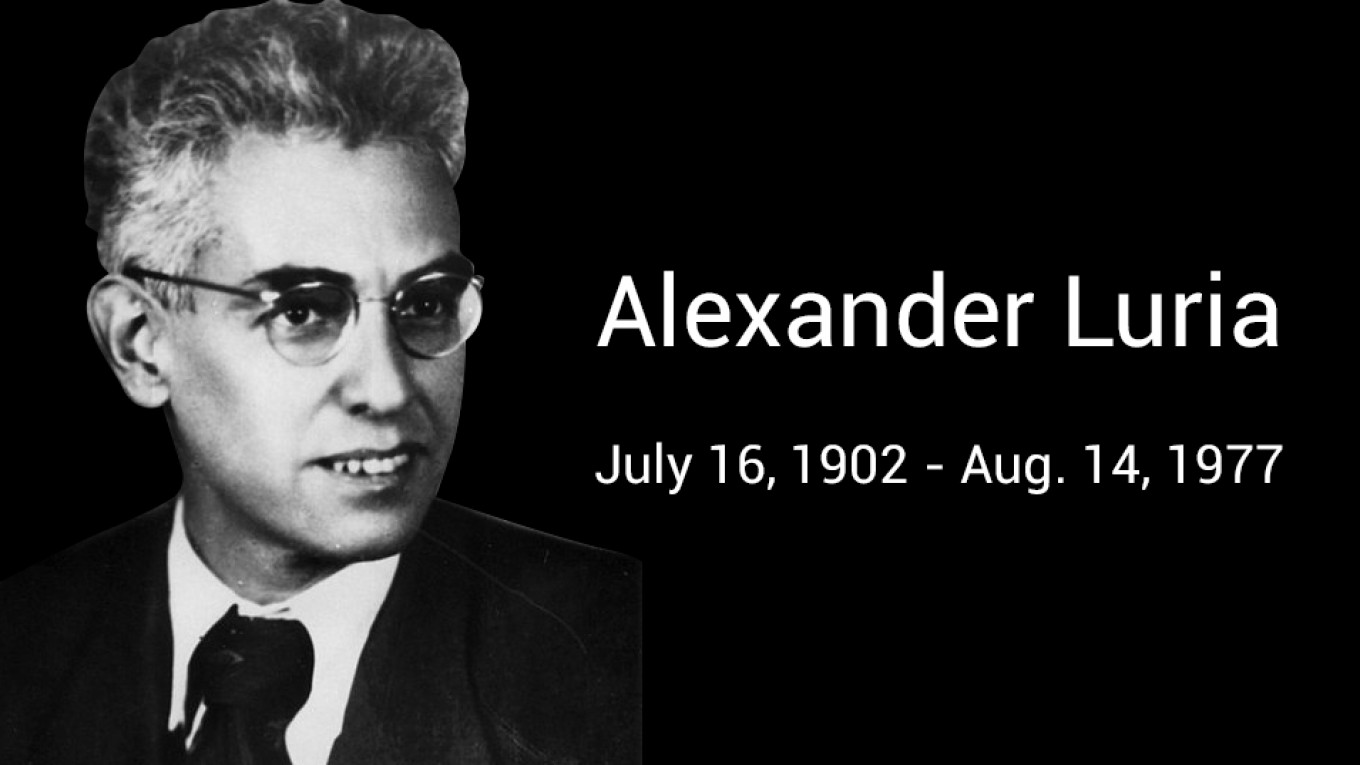Alexander Luria was born into a Jewish family in Kazan, Russia. His father was a professor of medicine at the University of Kazan. Luria began his student years at Kazan State University in language and literature, but he was fascinated by psychoanalysis. He founded the Kazan Psychoanalytic Society and corresponded with Sigmund Freud before graduating in 1921. Luria wanted the field of psychology to unify the generalizations of natural sciences with the deep insights into individual psychology offered by the humanities.
His early research attempted to integrate experimental techniques with the psychoanalytic technique of free association. In an experiment to improve worker efficiency in a Soviet laboratory, Luria used these techniques to study the effect of fatigue on mental activity. Workers experiencing varying degrees of fatigue were asked to free associate to given verbal stimuli while Luria recorded their response times. This research won him a position at the Moscow State Institute of Experimental Psychology, and he moved to Moscow in 1923.
In Moscow, Luria developed his “combined motor method” which would become an internationally famous psycho-diagnostic technique. At first, subjects were asked to perform several tasks simultaneously while responding to verbal stimuli. After the subject’s coordination baseline was established from these preliminary trials, the experimenter introduced a verbal stimulus based on a hypothesis about the subject’s thoughts. The type and duration of disruptions in subjects’ coordination were then used to reconstruct their thought processes. Luria’s combined motor method served as an early lie detector and was used in the criminal justice system.
In 1924, Luria met fellow Soviet psychologist Lev Vygotsky. They established the Vygotsky-Luria Circle, which tried to develop a theory of “cultural-historical psychology,” which sought to account for the unity of mind, brain and culture in human development in specific settings. In the early 1930s, this research took Luria to Central Asia, where he researched how changes in economic and educational opportunities affected the development of perception, problem solving, and memory. He concluded that underprivileged children were not “more backward” than educated ones, but had simply picked up different categorizations and cultural tools from their environments. Research on twins further helped Luria differentiate social factors from genetic ones in psychological development.
He entered medical school in the late 1930s and specialized in aphasias (speech disorders due to brain damage). The start of World War II made Luria’s expertise crucial to Soviet authorities, who were trying to deal with traumatic injury suffered by soldiers. From his clinical work with brain-injured victims of the war, he produced both a set of neuropsychological tests and a textbook that are still used today.
Anti-Semitic discrimination after the war forced Luria to move to the Institute of Defectology, where he studied the development of language and thought in intellectually disabled children. He concluded that language responses shape motor responses, framing his research in Pavlovian terms because this was the model for psychology research mandated by Stalin and the Soviet authorities. When he returned to neuropsychology in the late 1950s, Luria wrote two case studies which have since become very famous. The first, “The Mind of a Mnemonist,” was about a Russian journalist with a nearly unlimited memory. The second, “The Man with the Shattered World,” chronicled the treatment and recovery of a soldier who had suffered brain injuries during the war. These case studies synthesized experimental and narratological approaches and served as models for later cognitive science.
Luria continued his work until he died of heart failure in 1977.
A Message from The Moscow Times:
Dear readers,
We are facing unprecedented challenges. Russia's Prosecutor General's Office has designated The Moscow Times as an "undesirable" organization, criminalizing our work and putting our staff at risk of prosecution. This follows our earlier unjust labeling as a "foreign agent."
These actions are direct attempts to silence independent journalism in Russia. The authorities claim our work "discredits the decisions of the Russian leadership." We see things differently: we strive to provide accurate, unbiased reporting on Russia.
We, the journalists of The Moscow Times, refuse to be silenced. But to continue our work, we need your help.
Your support, no matter how small, makes a world of difference. If you can, please support us monthly starting from just $2. It's quick to set up, and every contribution makes a significant impact.
By supporting The Moscow Times, you're defending open, independent journalism in the face of repression. Thank you for standing with us.
Remind me later.






